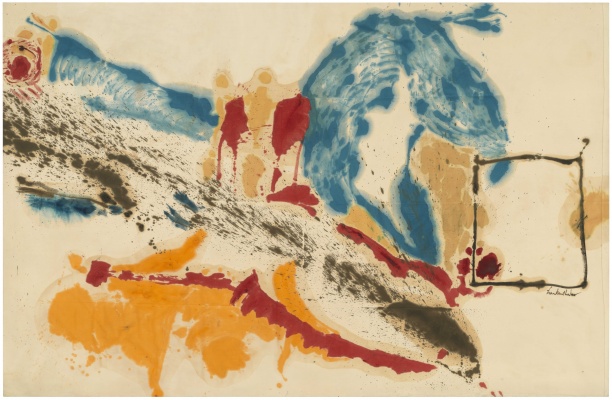Descripción de la Exposición
TEO'S PINK PANTHER
Text by Adriana A. Leanza
The main protagonist of this story, as the title itself suggests, is someone called Teo. We still do not know who he is and what Pink Panther means. So we start to imagine: is Teo related — somehow, inexplicably — to the famous Pink Panther, elegant as Cary Grant, cheeky as James Dean? If yes, how? Is the Pink Panther somehow Teo’ s property? And yet, who is Teo? While we are wondering about such substantial questions, we find ourselves inside a pink small space, a Chinese box, a space made of spaces. Our first considerations concern the color of the location — everything is pink. Quite likely we start finding a connection between the Pink Panther and the pink walls. We may think it is some kind of pun, and if we are right Pink Panther is not referred to the fancy animal anymore, pointing out instead a geographical ingredient we still have to figure out.
Luckily, we got in with that old friend from Mallorca we have not seen for a long time. She is the first one puzzling out the enigma – Pink Panther, or Pantera Rosa is the name of a neighborhood in the island, once known for being unsafe back in the days. The name, she explains, refers to the pink shades of the buildings. This component makes us aware of something important: there is a deep connection between the protagonist Teo and the Pink Panther. We suddenly sense Teo possibly lived there once – What if he is still there? –.
In addition to that, our Mallorca friend — let’s face it, without her we would have been lost inside this show — heard of an interesting fact, someone claiming Teo to be Ian Waelder’ s brother. Another piece of the puzzle! We now have several elements to rack our brains with.
We start looking around at the space tensely, is there another detail waiting to be uncovered? Maybe an artwork, secretly hidden? Wandering around, our bodies feel tight; our eyes gaze at the PVC curtains interrupting the linearity of the space as transparent reefs. A voice fills the air. We feel like we are entering Teo’ s memories. The black and white photographs_ printed on the PVC glass material are inviting us to explore and remember a space we never experienced before.
Together with an invitation, a warning. Therefore, the space seems to state
“visitors, you are welcome to enter this memory. However, do not expect
me to entirely
reveal myself to you. You are invited to walk through my
curtains, but these same curtains
are barriers — both physical and visual
—, as the memories are rough to comprehend and
communication is
neither simple nor linear”.
This statement is echoing inside our ears as a dark omen. We comprehend the responsibility of being inside someone else’s memories, how privileged we are. We begin to move around the space with discretion, to slowly observe each photograph, in the attempt to sense the atmosphere of the images and to make Teo’ s experience ours.
Still, we know, how hard we try
those memories will never be entirely ours.

Premio. 25 mar de 2025 - 08 may de 2025 / Madrid, España

Exposición. 11 abr de 2025 - 28 sep de 2025 / Museo Guggenheim Bilbao / Bilbao, Vizcaya, España

Formación. 08 may de 2025 - 17 may de 2025 / Museo Nacional Centro de Arte Reina Sofía (MNCARS) / Madrid, España